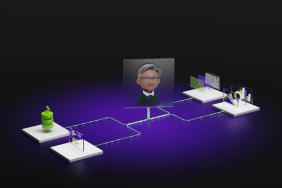On Tuesday, OpenAI unveiled a new initiative named The Stargate Project, aimed at enhancing artificial intelligence (AI) infrastructure in the United States. The organization plans to invest a staggering $500 billion (approximately Rs. 43 lakh crore) to develop this infrastructure. This announcement follows recent challenges faced by OpenAI, including significant outages and the implementation of a rate limit on its video generation platform Sora to manage server demand. Furthermore, Microsoft reaffirmed that this new venture does not change the existing partnership it has with OpenAI.
OpenAI Launches The Stargate Project
In a blog post, OpenAI described The Stargate Project as a strategic move to bolster its operations and maintain American leadership in the AI sector. The company plans to initially invest $100 billion (around Rs. 8.6 lakh crore) immediately, followed by the remaining $400 billion over the next four years. Initial equity partners for the project include SoftBank, OpenAI itself, Oracle, and MGX, with SoftBank and OpenAI serving as the lead partners—SoftBank managing financial matters while OpenAI oversees operations.
On the technological front, OpenAI has formed partnerships with industry leaders including Arm, Microsoft, NVIDIA, and Oracle. NVIDIA and OpenAI will collaborate on constructing and managing the new AI infrastructure, which is already under development in Texas. The company is also assessing additional potential locations for expansion.
Importantly, OpenAI’s existing collaboration with Microsoft is set to continue through 2030. Under this partnership, Microsoft’s Azure cloud service platform possesses exclusive rights to the OpenAI API. In a statement released on Wednesday, Microsoft emphasized that all current terms of this agreement remain intact.
Additionally, Microsoft confirmed that OpenAI has made a significant new commitment to Azure, which will support all of OpenAI’s products as well as model training. The tech giant expressed its support for OpenAI’s plans to expand its capacity, which will mainly focus on research and model training purposes.
Last year, The Information reported that there was growing frustration within OpenAI’s leadership regarding the pace of Azure’s scalability, with sentiments suggesting the platform was lagging in meeting OpenAI’s computational demands.






